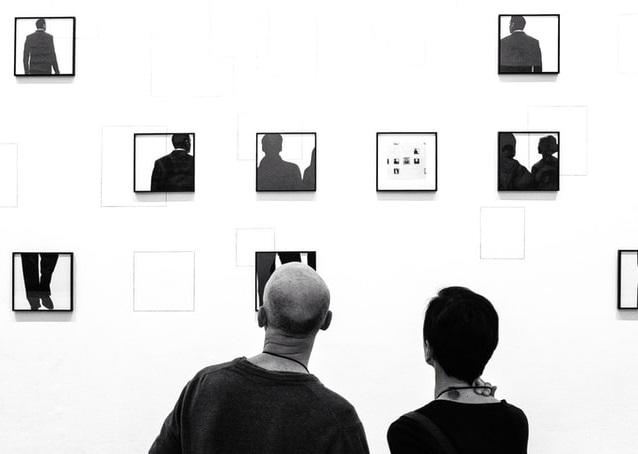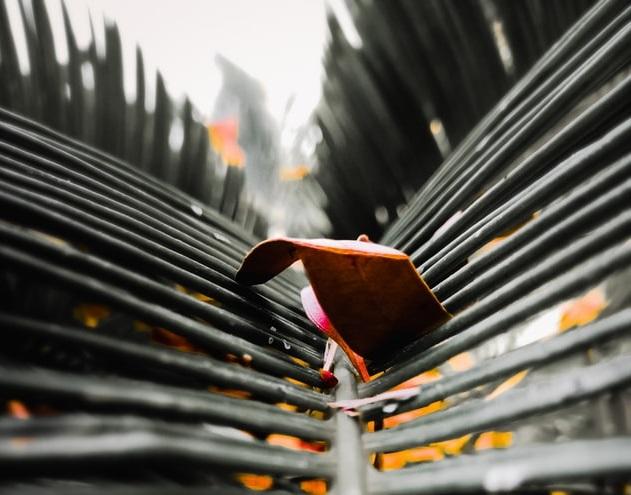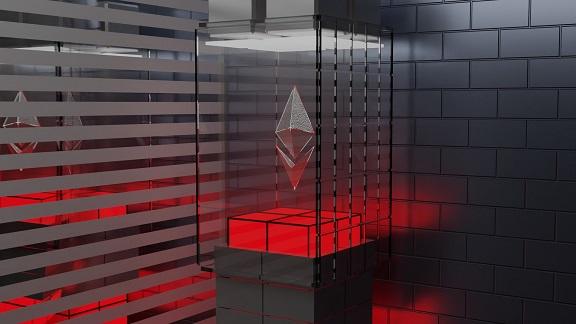We're so privileged to live in a time and place where we can buy things just because we like or want them, with no other specific purpose or usage in mind for them.
That privilege doesn't silence the "But what's the use of it?" trope that, for years, has been a staple of comedy shows, satires and advertisements.
When it comes to NFTs, questions like "What are you going to do with it?" - or, more accurately: "What can you do with it?" underscore how deeply misunderstood NFTs are.
Many equate them with cryptocurrencies; kinda cool but nerdy, serving little practical purpose, if any purpose at all. They believe digital art is a speculative investment, at best and a waste of money, at worst. Some remain noncommittal, considering NFTs a novel curiosity, unaware of their real value and many functions.
We can't say that such thinking is outdated because many of society's underpinnings - from financial structures to cultural markers (museums, concerts, festivals and the like) remain rooted in the practical world. It won't be that way forever.
More and more of the human experience is duplicated in cyberspace. Social media has long pulled ahead of in-person gathering (in terms of net usage) and online education has become normalized in these pandemic times. Remote work has also gained a firm foothold, even though freelancers have long been gadding about the world, crowing about their professional freedom.
Holding and using digital assets is merely the next logical step in our transition to fully 'Net-integrated lives.
Just look at all the things you can already do with digital assets:
| Uses for NFTs |
|---|
| 1. Personal use: social media avatars, for example. |
| 2. Collecting: much like coin and stamp collectors, NFT collectors are keen to pick up new art to add to their collections. |
| 3. Play with them: use your NFTs when gaming. |
| 4. Make money with them: NFTs are a great source of passive income. |
| 5. Invest in them: as NFT popularity grows, your NFT collection could mean big money. |
Considering the value and benefit of NFTs, along with how seamlessly they fit into the digital enmeshing of our lives, it's worth exploring what you can do with NFTs.

What's The Point of NFTs?
Right off the bat, we need to clear up the misconception that NFTs are only generated art. Though digital art makes up the bulk of NFTs, non-fungible tokens are, in fact, digital assets that may be works of art. Essentially, anything that can be digitized can be an NFT. Such items include:
- snapshots
- video files
- audio files, including music files
- documents
- real-world assets

You might wonder about how real-world assets become digital, and why anyone would want to digitize their actual possessions. There are more than a few reasons for doing so, with counterfeiting being just one.
Imagine you splurge on a designer suit or a piece of jewellery. Unless you buy it from a reputable outlet, how do you know that it is from a genuine collection rather than a clever copy?
Counterfeiting is a billion-dollar industry that has undercut the world of design. When a designer releases a new collection, design thieves rush to copy select pieces and bring them to market, often before the designer can see any profit from their creations.
Designers minting their collections as NFTs allows prospective buyers to rest assured that they are trading their money for a genuine article, not lining unscrupulous merchants' pockets.
Another good reason to digitize your real-world assets: inheritance.
Many find it despicable that families descend into squabbles over what Dear Old Granddad left to whom. It always seems that, the more expansive the estate, the more vociferous the infighting is. Bequeathing your estate via smart contract - minting your assets, setting the terms of the contract between yourself and your intended recipients would transfer ownership of your assets without courts and lawyers getting involved.
In a similar vein, creating document NFTs safeguards intellectual property, musicians minting their melodies safeguards their copyright, and minting snapshots and videos preserves both family and social heritage.
In case you were wondering, minting photographs, videos and audio files are some of the easiest ways to make NFTs.
With all of that being said, we have to return to the mainstream belief that NFTs are generated art so we can lay out all the things you can do with NFTs. Because that's the type of token that seems to confound everyone.
Find trading tutor on Superprof.

Collect NFTs
Could there ever be two, more mismatched archetypes than the crypto-nerd and the art connoisseur? They have much more in common than you'd think.
The latter is usually of elevated social status who lives in fine homes, dwellings with fine paintings adorning the walls and, perhaps, strategically-placed statues. They duke it out with others of their ilk at auction, vying for the latest artwork of renown to change hands at the auction block.
Because those works are aged and limited in number, they are extremely valuable; a quality reflected in those bidding wars.
Meanwhile, those of us who are short of cash; who could never hope to bid on a Vermeer or a Munch pursue art of a different sort. An art form that's more accessible, more affordable and, so far, less competitive than the rarefied circles described above.
Owning art has long been seen as a symbol of status and refinement, as well as a vehicle to build wealth. For centuries restricted to the wealthy, today's digital art ownership democratized the privilege. Now, rather than spending millions on a one-of-a-kind work of art to display in your home, you can scoop up a unique piece of digital art for just a few thousand.
Or less, depending on the collection and artist's renown.
Just as for traditional art collectors, your NFT collection confers status, especially if you own a piece from a renowned collection. But don't limit yourself to high-profile generated art creators, you never know who the next big name in digital art will be.
Are you now keen to start your NFT collection? You need to know the best places to buy NFT...
Game With NFTs
Just as traditional art collectors enjoy playing games, NFT collectors have their preferred games; most often of the digital variety.
There's no doubt that gaming consoles kindled a passion for electronic games. Although digital gaming got its start in the 1950s. the Nintendo gaming console, released in the mid-80s launched the video game culture. Since then, gamers have defined themselves through their culture; one with its own language, hierarchy and social rules.
In 2017, a new type of game expanded gaming capabilities. To play, you must have at least one NFT - a cat, that you may breed with other gamers' cats. Or, if you'd like, you may trade your cat for someone else's or simply buy them outright.
Some aver that CryptoKitties isn't really a game because there's no goal to achieve; you don't have to breed your kitty or swap or sell or buy. The point is to interact in the 'kitty-verse'. Indeed, Kitties doesn't offer rewards, not even for accomplishing certain feats.
Kitties' resounding success proved that NFT gaming is a viable concept. Soon, game designers released games of their own. In the five years since CryptoKitties beguiled the gaming world, scores of new, more lucrative games have cropped up.
If you're an avid gamer and have been wondering where and how you can buy NFT, you might check out some of this year's hottest games: Axe Infinity and The Sandbox currently enjoy the highest ratings.
Sorare, the fantasy football NFT game, is all the rage among gamers who love the footie.

Make Money with NFTs
Again, paralleling the real world, simply owning NFTs is an opportunity to build wealth - just as for art patrons, whose canvases add to the value of their estate. Some NFT collectors, rather than let their pieces just grow in value, use them to earn money.
One good way to generate a passive income is to rent your NFT out.
Let's say you were a devout CryptoKitties player a few years ago but, now, you've moved on to other games. Why let your Kitty languish on the blockchain? You can rent it out to newly-enthused gamers or, if one of your former Kitty's game-mates wants to breed their kitty with yours, you could lend it to them for a fee.
If you don't own any gaming NFTs - or if you do but aren't currently playing with them, you might stake all of a part of your collection.
Staking NFTs is a bit like putting a wad of money away for a set period. You surrender the use of your token - not your ownership, for a prescribed amount of time. When the agreed-upon time is up, you reclaim active usage of your token and collect interest payments, to boot.
Flipping NFTs is another way to make money. It works just like flipping houses - buying a structure, renovating it and selling it for a higher price, except you cannot upgrade your newly-bought NFTs. The trick to flipping is knowing how the market works and staying atop its fluctuations.
You can earn more if you have NFTs from a highly sought-after collection but don't discount any pieces from up-and-coming artists.
One more way to make money from NFTs: become a generated art creator.
If you have a keen sense of artistic vision and the patience to learn new skills, avail yourself of free software - GIMP, Krita, Vectr and others, and let loose your inner artist. Who knows? You might just be the next big name in digital art!
Now, discover more ways you can make money from NFTs.
Summarise with AI:
















